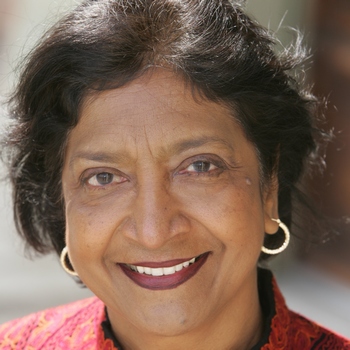DOCTOR OF LAW (HONORIS CAUSA)
 Navanethem (Navi) Pillay was born on 23 September 1941 in Durban. Supported by her local community with donations, she graduated from the University of Natal with a BA in 1963 and an LLB in 1965. She was admitted as an attorney and conveyancer in 1967, when she became the first woman to open her own law practice in Natal, providing legal assistance to anti-apartheid activists and trade unionists.
Navanethem (Navi) Pillay was born on 23 September 1941 in Durban. Supported by her local community with donations, she graduated from the University of Natal with a BA in 1963 and an LLB in 1965. She was admitted as an attorney and conveyancer in 1967, when she became the first woman to open her own law practice in Natal, providing legal assistance to anti-apartheid activists and trade unionists.
In a trial under the Terrorism Act (1971-1972), Navi formed part of the defence team that exposed the use of torture and unlawful methods of interrogation. In 1973, in another precedent-setting case, she brought a successful application against the officer commanding Robben Island Prison, which established that political prisoners on Robben Island had rights and privileges. In a later, also precedent-setting case (1979-1980), she was instrumental in the Appellate Division of the then Supreme Court recognising that solitary confinement had certain debilitating effects on the reliability of testimony extracted under such conditions. Finally, in one of her last criminal cases before her elevation to the Bench, Navi was the first to rely on the family violence syndrome as a defence. The trial received wide coverage and one of its repercussions was media focus on the sexual abuse of children.
These kinds of activities, of course, were not calculated to endear her to the Nationalist Government or its security forces and, for many years, Navi was denied a passport. She nevertheless succeeded in being awarded an LLM in 1982 and a DJS in 1988, both by Harvard Law School.
In 1995, Navi became the first woman of colour to be elevated to the Bench. Her tenure however was cut short when, in May 1995, she was elected for a four-year term as the only woman by the UN General Assembly as judge of the International Criminal Tribunal for Rwanda (ICTR). She was re-elected for a further term in 1998. Her time at the ICTR is best remembered for her role in the landmark Akayesu case in which a local government official was found guilty of rape as an act of genocide.
In February 2003, she was elected by the Assembly of State Parties to the Rome Statute as one of the 18 judges of the newly-created International Criminal Court, and was assigned to the Appeals Division. In July 2008, following approval by the UN General Assembly, she was appointed UN High Commissioner for Human Rights.
Navi's commitment to human rights and to women's issues extends well beyond her formal professional work on the Bench. Apart from being honorary chair for Equality Now (a New York-based non-governmental organisation that helps women around the world learn and fight for their rights and which Navi co-founded in 1992), she served on the board of the women's component of the National Economic Initiative and has also held key positions with among others, the Women Lawyers Association, Lawyers for Human Rights and the Women's National Coalition.
In July 2003, Navi received the Outstanding International Lawyer Award, presented by the International Bar Association in recognition of her “professional excellence and her ongoing contribution to the advancement of women within the profession”. She also received the inaugural Gruber Prize for Women’s Rights (awarded to an outstanding individual who has effected fundamental shifts in knowledge and culture).
In recognition of her unique contribution to the development of South African and international human-rights law as well as the worldwide respect she commanded as a judicial officer, it is an honour for NMMU to confer the degree of Doctor of Law (honoris causa) on NAVANETHEM PILLAY.